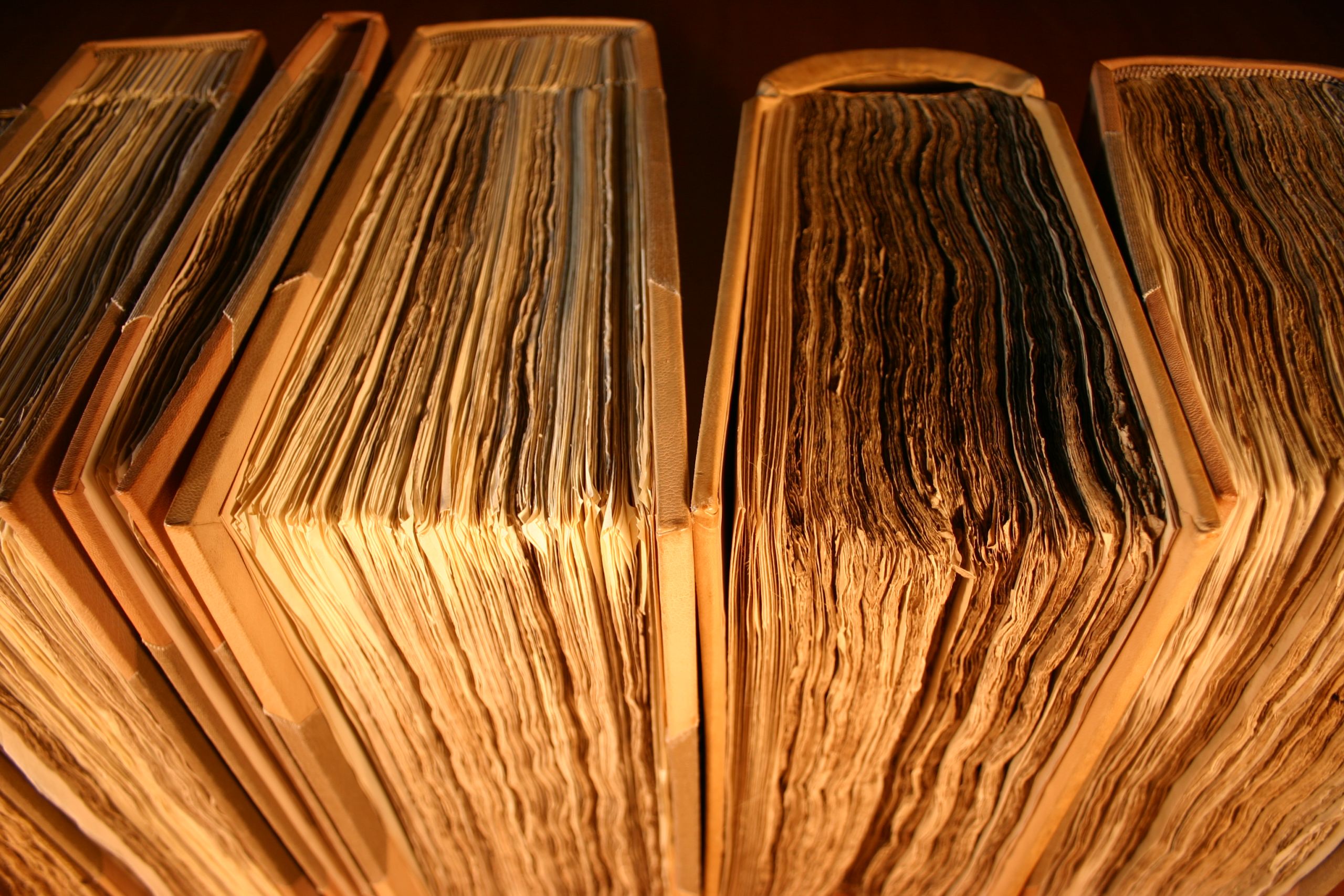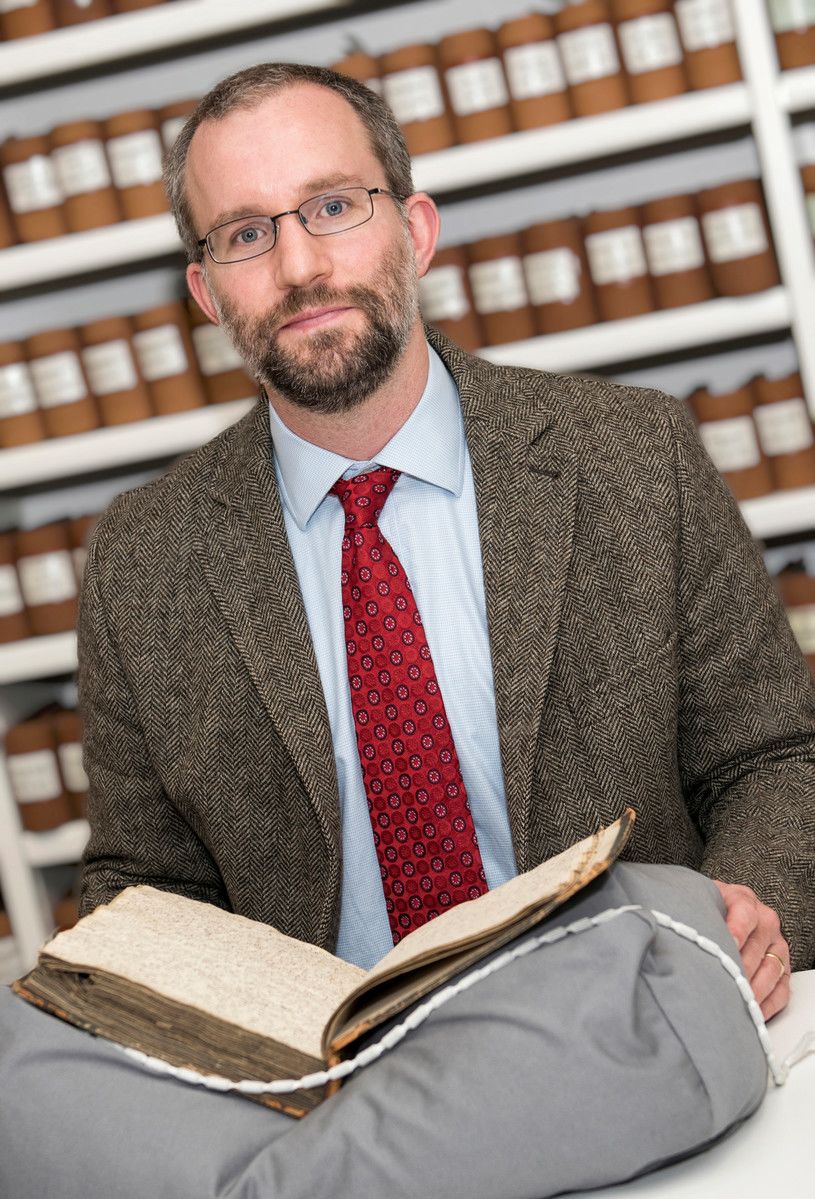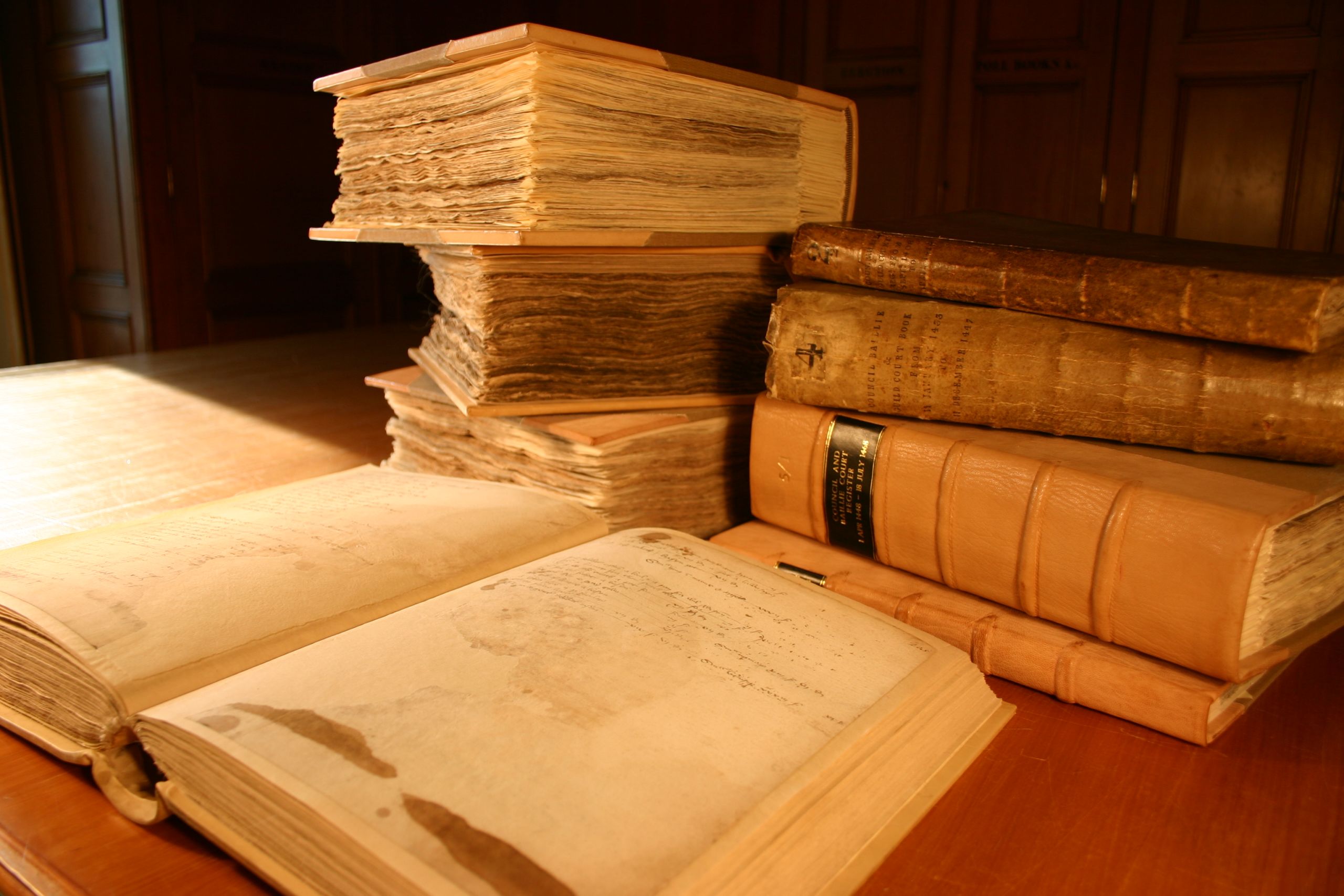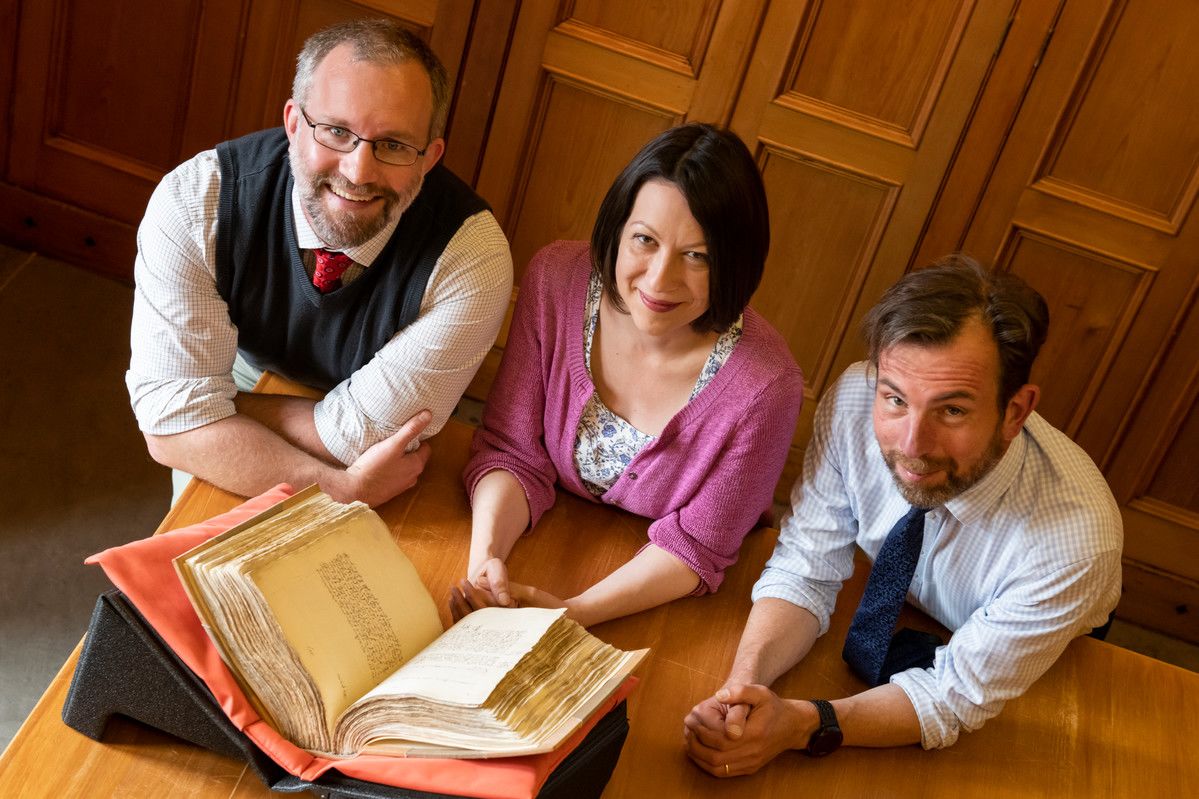Unlocking Aberdeen’s archives to interrogate medieval law
Our researchers created an online tool that is now one of the best resources for exploring medieval life in Europe.

New historical research can help us to understand the inner workings of the towns and cities of medieval Scotland. Whilst urban archives can offer a glimpse into life hundreds of years ago, these fragile records have often been lost or destroyed over the centuries by threats of fire, flood and infestation.
But fortunately for Aberdeen, a huge number of council registers from as early as 1398 have been preserved and are held by the Aberdeen City and Aberdeenshire Archives. In 2012, a collaborative project was launched to investigate the records as a way of better understanding how law was used in the middle ages, and to examine the political, socioeconomic and cultural issues of these times.
Exploring the Aberdeen Burgh Records
Led by Dr Jackson Armstrong, a Senior Lecturer at the University of Aberdeen, together with Dr Andrew Mackillop who is now a Senior Lecturer at the University of Glasgow, the Aberdeen Burgh Records Project was established initially as a collaboration between the University, the Aberdeen City and Aberdeenshire Archives (ACAA) and the National Records of Scotland (NRS), building on digitised images of the earliest council registers created in cooperation between the ACAA and NRS.
As the earliest and most complete collection of council registers from any Scottish town, Dr Armstrong and his team were keen to explore the records to gain an insight into the urban and regional life of the past.
Mainly written in Latin and Middle Scots, the records date from 1398 to the present and comprise legal records containing court proceedings, elections, ordinances and general correspondence. Following initial pilot projects, three years of funding were awarded by the Leverhulme Trust for an interdisciplinary project between researchers in history, law, computing science, archives and linguistics to transcribe the first eight volumes of the records, dating from 1398 – 1511.



Understanding law in medieval Aberdeen
This project was entitled ‘Law in the Aberdeen Council Registers 1398 – 1511: Concepts, Practices and Geographies’ (LACR) which was also funded by and housed in the University’s Research Institute of Irish and Scottish Studies, and the Aberdeen City Council.
Ultimately, the multidisciplinary project team used the records to create and publish a resource that would allow researchers around the world to examine the legal concepts, practices and geographies of those years in not only Scotland, but also Europe.
“Regarded as a jewel in Aberdeen’s crown, the council registers, which have UNESCO UK designated status, are an important cultural asset that provide a valuable insight into the history and language of Scotland and Europe.
They demonstrate the distinctive patterns of local government, law and everyday life in a thriving Scottish burgh closely interlinked by trade and commerce with other towns across the North Sea and Baltic Sea.”
Developing a digital resource
The result of the LACR project was Aberdeen Registers Online: 1398 - 1511 (ARO), an edition that is now one of the best resources for exploring medieval life in Europe. A digital transcription of the first eight register volumes, and comprising more than 1.5 million words, the resource took three years to complete as the team deciphered complex Scots and Latin handwritten text to better understand everyday life in the reigns of Robert III, James I, James II, James III, and James IV.
In addition, a prototype search tool was initially built by third year undergraduate computing science students, to display and search the transcription and corresponding images. This was developed further by the University of Aberdeen to make it publicly accessible as Search Aberdeen Registers.
Dr Armstrong said: “This was a large and challenging project involving a diverse and skilled team, and we’re delighted that the records have now become a resource that others can explore. Nothing like it in depth and continuity has survived from any other Scottish town before 1500 and we’re extremely lucky to have such a comprehensive volume of records from this time.”


Dr Jackson Armstrong, Dr Claire Hawes and Dr Phil Astley
Dr Jackson Armstrong, Dr Claire Hawes and Dr Phil Astley

Community engagement
Coinciding with the creation of the Aberdeen Registers Online, there has been significant creative activity inspired by the content of the records.
Dr Armstrong said: “By ensuring the resource is open access, we have provided an opportunity for researchers and the public to view the records from anywhere in the world, and ‘translate’ the contents in their own way. Over the life of the project we’ve seen increased public engagement and awareness which has led to several exciting associated activities.
“Inspired by the registers, project members have created artistic responses to the records in different ways. One former LACR researcher, Dr William Hepburn, developed a murder mystery called ‘Who Killed David Dun? at the first Granite Noir crime writing festival in 2017. William subsequently won an AHRC Creative Economy Engagement Fellowship to investigate the potential for video games inspired by Aberdeen’s medieval records.
“Dr Claire Hawes, another member of the LACR team, found the earliest reference to a still for Scotch Whisky (aquavite) in the registers, a find which we were proud to announce in summer 2019. In connection with this we have been awarded funding by Chivas Brothers to further investigate the origins of whisky in Aberdeen. Claire has also led ‘Songs from Medieval Aberdeen’, a collaborative project with local musicians Davy Cattanach and Paddy Buchanan, which has written contemporary folk songs based on Claire’s historical knowledge of the registers. Following the first performance of the songs at May Festival 2019, the ‘Songs’ project was invited to perform at Aberdeen Folk Club in October 2019, with more performances planned for the future.
“It is really rewarding to see the potential for using these records in new and creative ways being unlocked, and we’re excited to be part of the new conversations that continue to arise as we build momentum and demonstrate the full potential of this valuable resource.”
Impact
- Transcription of the registers has offered researchers, and the wider public, a glimpse into medieval life in Scotland and Europe
- The publication of Aberdeen Registers Online has led to increased awareness and public engagement around the world
- The Aberdeen Burgh Registers from 1398-1511 were recognised by UNESCO UK in July 2013 as being of outstanding historical importance to the UK, and were inscribed on the Memory of the World register
- Interrogation of the contents has uncovered the earliest ever reference to a still for Scotch Whisky (aquavite), suggesting that whisky’s origins may lie in the renaissance burgh of Aberdeen. Chivas Brothers has awarded £15,000 to further explore the still and its context
- Dr Claire Hawes leads ‘Songs from Medieval Aberdeen’, collaborating with local musicians Davy Cattanach and Paddy Buchanan to write contemporary folk songs based on Claire’s historical knowledge of the registers
- Dr William Hepburn was awarded an Arts and Humanities Research Council Creative Economy Engagement Fellowship to investigate the potential for video games inspired by the medieval life uncovered in the records
- LACR and the wider Aberdeen Burgh Records project featured in case studies within national guidance published by The National Archives in partnership with History UK, entitled ‘Guide to Collaboration between Archive and Higher Education Sectors.’

Publications
More Social Inclusion and Cultural Diversity stories








